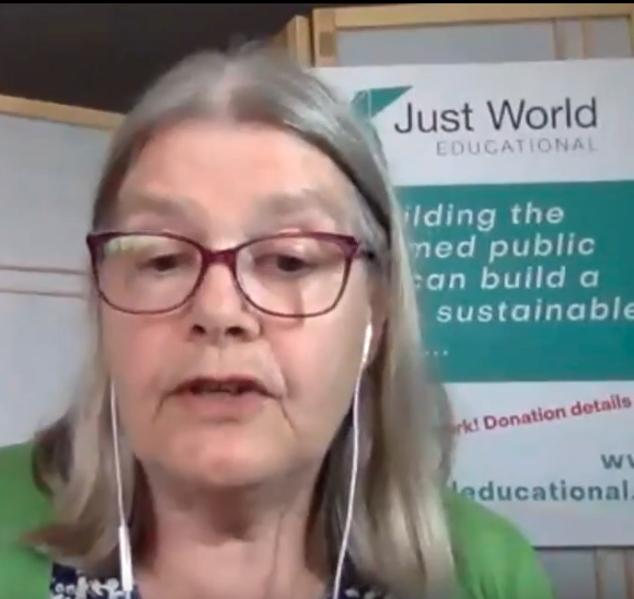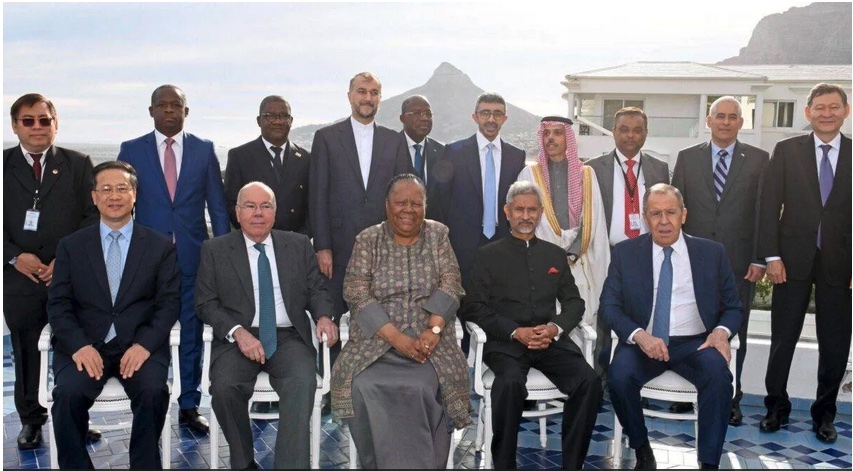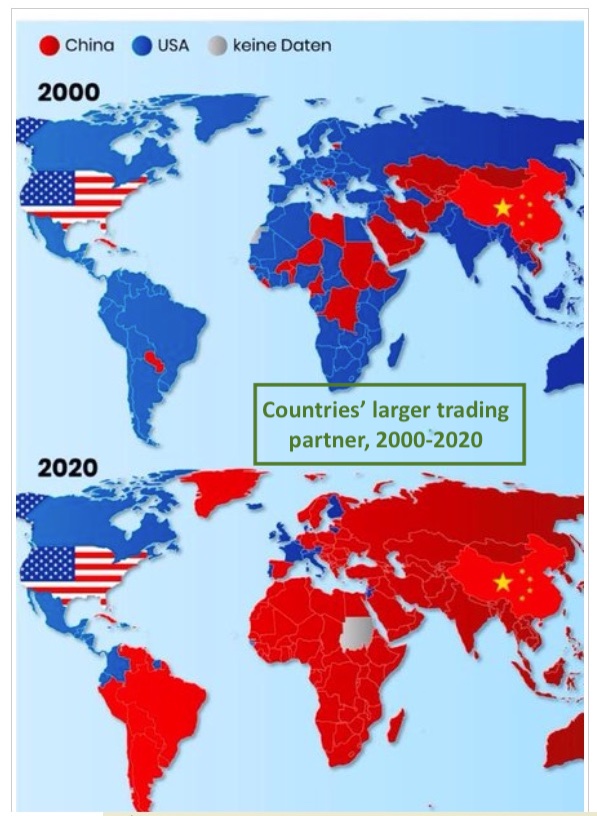The above image shows the foreign ministers of the five existing BRICS members (seated) during their recent meeting in Cape Town. Behind them are ministers from 10 of the 13 states thought to be applying for membership.

In recent weeks, JWE President Helena Cobban has been exploring the rapidly expanding role that the “BRICS” grouping—Brazil, Russia, India, China, and South Africa—has been playing in world affairs. On Moday evening, she was a panelist in a webinar on “Shifting Power Dynamics: Ukraine, Russia, and U.S.-China Relations in a Multipolar World” that was presented by the Committee for a SANE US-China Policy, of which she is a member. The other panelists there were veteran Five Colleges peace educator Michael Klare and Australian scholar Joseph Camilleri, and the discussion was ably moderated by Joseph Gerson, who heads the Campaign for Peace, Disarmament, and Common Security.
Then yesterday, a short article that Ms. Cobban wrote last week, “How BRICS Countries Help to Define a Truly New World Order”, was published by The Nation.
In the Nation article, Ms. Cobban provided some helpful background about the history of the BRICS grouping, which was founded (as “BRIC”) in 2009, in the aftermath of the global financial crisis of 2008. She also focused on what happened at the foreign ministers’ meeting the bloc held in Cape Town in early June, as they prepared for the grouping’s 15th summit meeting, slated to be held in South Africa in late August.
She noted that,
last year, the combined economic output of the five BRICS members, measured in purchasing power parity, for the first time exceeded that of the US-led G7. And this year, BRICS is poised to move to a much more powerful role in world affairs: It looks as if 13 significant other nations from the Global South, including Saudi Arabia and Iran, may be admitted to the grouping at its upcoming summit…
She wrote of BRICS that,
All its member nations (except Russia) have deep, vivid memories of the harms their peoples suffered during earlier centuries of white, Western rule over their countries. In that, they are similar to the Non-Aligned Movement of the 1960s. But the BRICS leaders… define their interests and goals in primarily economic terms, sidestepping as much as they can the matter of military alignment or nonalignment. (They showed that in the agnosticism they expressed in Cape Town on the issue of the war in Ukraine.)
In Monday’s webinar, Ms. Cobban was able to expand on several of these points. She was also able, during the first of the two 7-minute time-slots assigned to her, to present graphics that helpfully illustrated some of the points she was making about BRICS’s growing reach and power. The second of her time-slots (36:15 -> 44:10) was devoted to the topic of the effect the conflict in Ukraine has had on the global power balance.
The discussion among the three panelists was a rich one, in the course of which they explored some of the differences that had been revealed among them, especially on the crucial matter of the whether military power still has any valency in world affairs.
Ms. Cobban later noted that the work she has been doing in writing the essays she has been publishing as part of JWE’s “Globalities” project had prepared her well for both of these recent assignments.
She told JWE:
I’ve been thinking deeply about the global balance for many decades now. And for the past three-plus years I’ve been focusing rather specifically on this matter of the hegemonic role that a handful of nations of West-European heritage have exercised over the affairs of all of humankind: how that hegemony was built in the first place, starting some 500 or 600 years ago, and what is happening now, as it crumbles with increasing speed. So these were two good forums in which to explore some of these issues in a more public way. Doing these projects with The Nation and with the Committee for a SANE US-China Policy has been very enriching!


